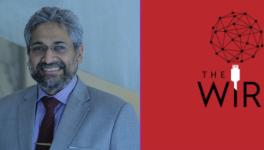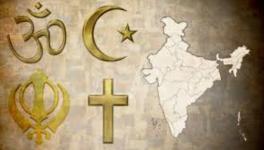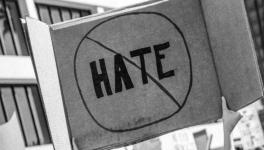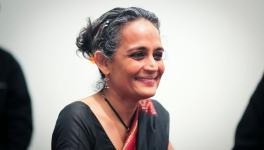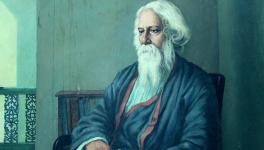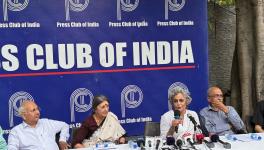Dateline: The Hague. Verdict: Confusion
Pick up any prominent national news daily in India and you will find them celebrating Wednesday’s verdict by the International Court of Justice (ICJ) in the controversial Kulbhushan Jadhav case. It has been hailed by the newspapers as a ‘diplomatic victory’ for India and ‘defeat’ for Pakistan. Then, go online, and check the Pakistani newspapers and you will find that those are doing exactly the same thing -- pronouncing it a massive victory for their country and India's defeat. So, who is telling the truth?
"ICJ rejects Indian plea for Jadhav's acquittal, release". So says the leading Pakistani newspaper Dawn, in its headline for a front-page lead story published on July 18, the day after the ruling in the Jadhav case.
The story published in Dawn begins with the claim that the ICJ has "rejected India's request for acquittal, release and return of Kulbhushan Jadhav, an Indian serving naval commander sentenced by Pakistan on charges of espionage and terrorism, but asked Islamabad to provide him consular access under the Vienna Convention."
By any measure, this verdict of the ICJ, summed up in the paragraph above, does not appear to be an untrammelled victory for either India or Pakistan. Yet, the Dawn report emphasises how, while the ICJ has said that Pakistan will "review and reconsider" the conviction and sentence, this will be done "by the means of its [Pakistan's] own choosing of legislation".
If you thought this report is an exception, think again. Not just Dawn or other Pakistan newspapers, even the Indian newspapers have loudly proclaimed the ICJ verdict as a ‘victory’ for India and an ‘embarrassment’ for Islamabad. For example, the Times of India's headline for the lead story on its first page was: "Review death sentence to Jadhav, int'l court tells Pak." This newspaper, like most others in India, chose a headline that emphasises those aspects of the ICJ ruling which it feels went in India's favour the most. In doing so, they have ignored those aspects of the ICJ's ruling that did not appear to go in India's favour.
Thereafter, for instance, Times of India's front-page story has a lead that describes the verdict as a "major legal and diplomatic victory for India". The basis for this comment is the fact that the ICJ has asked for Pakistan to "review and reconsider" the case and Jadhav's conviction and sentencing. The newspaper then goes on to say that the stay on the death sentence pronounced in Pakistan was yet another ‘important victory’ for India.
In making such pronouncements, which are no doubt a relief for Jadhav and India, what is ignored by the newspapers on this side of the border is that Pakistan's media and politicians have also been harping on the very same aspects of the ruling to claim that their side has won. For instance, they ignore the ruling asking for a retrial and harp on the fact that Jadhav's fate still remains in Pakistan's hands.
Take another example, again from Times of India. The newspaper says that the ICJ had rejected "all major contentions put forward by Pakistan". This point is butressed by the fact that the ICJ has ruled that the Vienna Convention was applicable in the Jadhav case. Now consider how Dawn has spun this part of the verdict. It has said that the conviction of Jadhav was not held to be a violation of Article 36 of the Vienna Convention and that India's request to annul the sentence on Jadhav by Pakistan's military court was not upheld. Naturally, this means that not "all major contentions put forward" by India were accepted by the ICJ either.
But who has time to piece together what really happened at the ICJ or what the ruling means to the key stakeholders--which includes Jadhav and the Indian and Pakistani establishment--when political spin doctors can simply bat for their own side, based on different parts of the verdict.
For instance, Pakistan Foreign Minister Shah Mehmood Qureshi is cited in the Dawn report as saying on Twitter that the decision of the ICJ was a "victory" of Pakistan. He said in his press conference that the ICJ findings were an "implicit" recognition and acceptance of Pakistan's stance regarding Jadhav's involvement in "espionage and terrorism". Does that mean there is no explicit support for Pakistan's position? Dawn doesn't explain. Instead, it emphasises Qureshi's statement that the choice of remedy -- how Jadhav will be tried for the second time--still remains with Pakistan.
The other contentious aspect of yesterday's verdict is the ICJ accepting that Jadhav is an Indian national who holds an Indian passport. Pakistan media has projected this as a victory for their country. So has the Indian media. This was made possible by playing up only the fact that the ICJ judges have found that Pakistan itself had submitted documents in which they had referred to Jadhav as an Indian.
The Express Tribune, another prominent newspaper in Pakistan, has an equally gung-ho headline in its print version: "Pakistan Vindicated". This goes along with a strapline in which it is claimed that the international court has rejected India's plea to annul the Pakistan military court's decision, while allowing consular access.
Similarly, Pakistan Today's headline says that "PM lauds ICJ's decision to 'not acquit, release Jadhav'.'
While Dawn acknowledges that the ICJ has noted that a continued stay of execution was indispensable to effectively review and reconsider the conviction, it only casually mentions that Pakistan had argued before the ICJ that Article 36 of the Vienna Convention was not at all applicable in cases of espionage.
That there is a twang of regret in Pakistan is evident from a smaller but still prominent accompanying report, also on the front page, in the Express Tribune, by the journalist Vaqas Asghar. The report states the opinion of the former chief justice of Pakistan, Tassaduq Hussain Jillani, who wrote a dissenting opinion in his capacity as ad hoc judge during the ICJ trial. The report says: "Justice (retd) Jillani considered that the court should have found India's application to be inadmissible in light of its conduct in the case, noting that the Vienna Convention in an agreement that is state to desire 'the development of friendly relations among nations'." What else is this but a bland admission--without directly saying so--that not everything in the verdict went Pakistan's way either.
The Pakistan news reports emphasise Prime Minister Imran Khan's Twitter comments, too. Khan had tweeted yesterday that the ICJ's decision "to not acquit, release and return" the Indian spy was something he and, presumably all of Pakistan, "appreciate". The tweet says: "He [Jadhav] is guilty of crimes against the people of Pakistan. Pakistan shall proceed further as per law."
Therefore, he makes the issue one of involving the entire populace of Pakistan, and not just the establishments on either side of the border.
Now consider how the Indian Prime Minister Narendra Modi responded on Twitter on Wednesday night soon after the verdict became public: "We welcome today’s verdict in the @CIJ_ICJ. Truth and justice have prevailed. Congratulations to the ICJ for a verdict based on extensive study of facts. I am sure Kulbhushan Jadhav will get justice. Our Government will always work for the safety and welfare of every Indian."
So, India, too, is making the issue one of pride, dignity and nationalism, rather than an international legal dispute, no matter how sensitive, critical or sensational the case might be.
The Indian Express chose a headline "Justice in International Court" and its story, also the lead on page one, says that New Delhi has "won a legal and diplomatic victory over Islamabad". It then reports in the main copy that the ICJ has, "however", rejected India's call to annul the Pakistan military court decision and grant Jadhav release and safe passage to India. It also acknowledges that the "ball is in Pakistan's court to decide his fate." The paper also reports that Jadhav will get consular access but may yet be tried in a civilian court of law.
It fell on the shoulders of Harish Salve, India's legal counsel in the case, to throw some balance into this precarious dance of versions. Salve was cited in a separate news report by the Times of India, where he says in London right after the verdict that if the Jadhav case "is back to the military court (in Pakistan) with the same rule where outside lawyers aren't allowed, we aren't allowed, access isn't given and evidence isn't given, then it won't meet the standards." He also reportedly says that India had challenged the conduct of Pakistan in its "brazen refusal" to adhere to the Vienna Convention and to allow consular access to an Indian. This story, which could have done with a more nuanced headline, instead went with: "Pak's passport ploy backfired on its argument: Harish Salve"
The thrust of newspaper reports in both India and Pakistan reminds one of what the British writer and commentator George Orwell once said in his famous essay, ‘Notes on Nationalism’: "The abiding purpose of every nationalist is to secure more power and more prestige, not for himself but for the nation or other unit in which he has chosen to sink his own individuality."
So, who is telling the truth? May be both, may be neither--that is how it appears from a perusal of the immediate stories filed in prominent dailies in both India and Pakistan. Journalists in both countries seem to face the same problem when reporting on national security-related affairs and diplomatic matters: These beats have the fatal flaw of having to toe the government line, or else risk having their access to the corridors of decision-makers cut off. That is why it is always instructive to recall what Orwell said in the same essay: "Probably, the truth is discoverable, but the facts will be so dishonestly set forth in almost any newspaper that the ordinary reader can be forgiven either for swallowing lies or failing to form an opinion."
Get the latest reports & analysis with people's perspective on Protests, movements & deep analytical videos, discussions of the current affairs in your Telegram app. Subscribe to NewsClick's Telegram channel & get Real-Time updates on stories, as they get published on our website.










